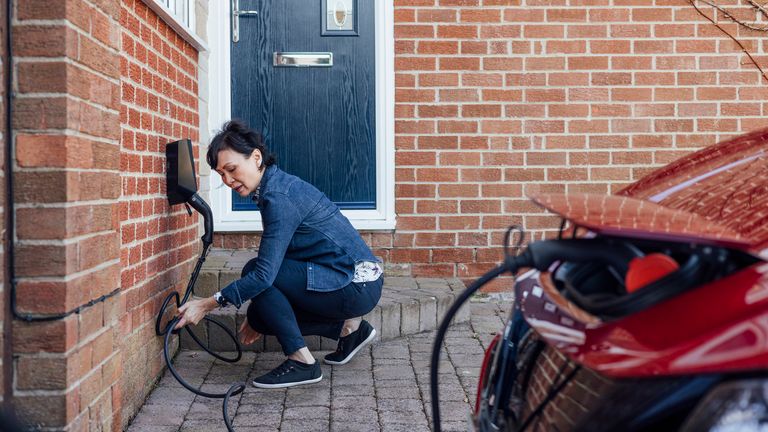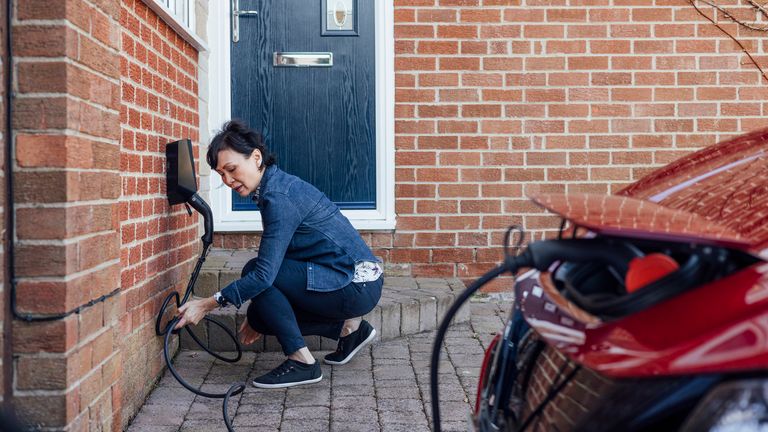Drivers Express Confusion Over Electric Vehicle Transition
UK drivers are reportedly “confused” by the transition to electric vehicles (EVs), according to warnings issued to ministers. A new survey highlights widespread misunderstandings about the government’s plans and the realities of owning an EV.

A woman charges her electric vehicle at home.
Research conducted by the AA, surveying over 14,000 members, revealed significant gaps in public understanding. Shockingly, 7% of respondents believed the government was banning the sale of used petrol and diesel cars. Further compounding the issue, around a third wrongly believed that manual EVs exist, despite them all being automatic. More than one in five stated they would never buy an EV.
The government’s strategy for increasing EV adoption focuses heavily on boosting the supply of these vehicles. In 2024, manufacturers in the UK were legally required to ensure that at least 22% of new cars and 10% of new vans sold were zero-emission, predominantly meaning fully electric. These percentages will increase annually, reaching 80% for new cars and 70% for new vans by 2030. Failure to meet EV sales targets will result in fines of £15,000 per vehicle for manufacturers if electric vehicle sales fall short of 28% of total production this year.
By 2035, the Department for Transport mandates that all new cars and vans must be entirely zero-emission. However, the sale and use of second-hand petrol and diesel cars will continue to be permitted after this date, with fuel remaining available.
Despite the growth in EV sales – with 25% of new cars in February powered by battery and 21% of all new cars registered in January – manufacturers have expressed concern that the market will not support the required expansion to meet government EV targets. They are advocating for consumer incentives and an extension of existing tax breaks.
The AA suggests the government’s approach concentrates too heavily on “supply but does little to encourage demand for EVs.” The organization is urging ministers to coordinate a public awareness campaign, in collaboration with the motoring industry, targeted directly at drivers who express doubts about the viability of EVs.
“Our message to government is more needs to be done to make EVs accessible for everyone,” said Jakob Pfaudler, AA chief executive.
Sue Davis, head of consumer rights at Which?, highlighted similar concerns: “When it comes to making sustainable choices such as switching to an electric car, our research shows that people are often held back by high costs, complex choices or uncertainty.” She emphasized the need for the government to provide clear and accurate information to build consumer confidence in EVs and other sustainable options.
A Department for Transport spokesperson responded by stating the government’s investment of over £2.3 billion to support the transition to EVs. This includes installing a public charge point every 28 minutes, maintaining EV incentives in the company car tax regime until 2030, and extending 100% first-year allowances for zero-emission cars for an additional year. They also noted the growing affordability of second-hand EVs, with one in three available under £20,000, and 21 new models priced at under £30,000, indicating increasing consumer confidence.



